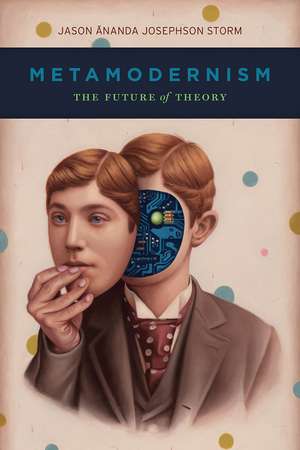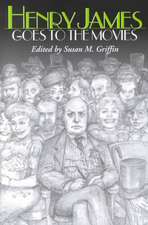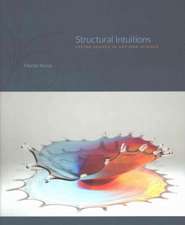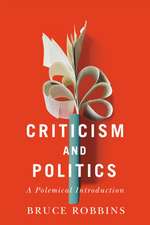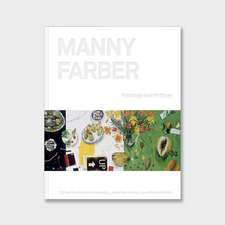Metamodernism: The Future of Theory
Autor Jason Ananda Josephson Stormen Limba Engleză Paperback – 20 iul 2021
Metamodernism works through the postmodern critiques and uncovers the mechanisms that produce and maintain concepts and social categories. In so doing, Storm provides a new, radical account of society’s ever-changing nature—what he calls a “Process Social Ontology”—and its materialization in temporary zones of stability or “social kinds.” Storm then formulates a fresh approach to philosophy of language by looking beyond the typical theorizing that focuses solely on human language production, showing us instead how our own sign-making is actually on a continuum with animal and plant communication.
Storm also considers fundamental issues of the relationship between knowledge and value, promoting a turn toward humble, emancipatory knowledge that recognizes the existence of multiple modes of the real. Metamodernism is a revolutionary manifesto for research in the human sciences that offers a new way through postmodern skepticism to envision a more inclusive future of theory in which new forms of both progress and knowledge can be realized.
| Toate formatele și edițiile | Preț | Express |
|---|---|---|
| Paperback (1) | 209.21 lei 3-5 săpt. | +20.93 lei 5-11 zile |
| University of Chicago Press – 20 iul 2021 | 209.21 lei 3-5 săpt. | +20.93 lei 5-11 zile |
| Hardback (1) | 611.18 lei 6-8 săpt. | |
| University of Chicago Press – 28 mai 2021 | 611.18 lei 6-8 săpt. |
Preț: 209.21 lei
Nou
Puncte Express: 314
Preț estimativ în valută:
40.04€ • 43.51$ • 33.66£
40.04€ • 43.51$ • 33.66£
Carte disponibilă
Livrare economică 31 martie-14 aprilie
Livrare express 15-21 martie pentru 30.92 lei
Preluare comenzi: 021 569.72.76
Specificații
ISBN-13: 9780226786650
ISBN-10: 022678665X
Pagini: 328
Dimensiuni: 152 x 229 x 28 mm
Greutate: 0.54 kg
Ediția:First Edition
Editura: University of Chicago Press
Colecția University of Chicago Press
ISBN-10: 022678665X
Pagini: 328
Dimensiuni: 152 x 229 x 28 mm
Greutate: 0.54 kg
Ediția:First Edition
Editura: University of Chicago Press
Colecția University of Chicago Press
Notă biografică
Jason Ānanda Josephson Storm is chair and professor of religion and chair of science and technology studies at Williams College. He is the author of The Invention of Religion in Japan and The Myth of Disenchantment: Magic, Modernity, and the Birth of the Human Sciences, both also published by the University of Chicago Press.
Cuprins
Preface and Acknowledgments
Note on Texts and Citations
Opening
0.1-Into the Abyss: Postmodernism Unraveling
0.2-Overview of the Work
Part I. Metarealism
1-How the Real World Became a Fable, or The Realities of Social Construction
1.1-Realism as Scientism
1.2-Varieties of Mind-Dependence
1.3-When Realism Becomes Antirealism and the Reverse
1.4-Apocalyptic Realism and the Human Sciences, or Real as Socially Constructed
1.5-Metarealism: Modes of the Real
1.6-Conclusion: Modes of Reality; Modes of Existence
Part II. Process Social Ontology
2-Concepts in Disintegration & Strategies for Demolition
2.1-The End of Religion
2.2-The End of Art
2.3-Strategies for Demolition
2.3.1-Immanent Critique
2.3.2-Relativizing Critique
2.3.3-Ethical Critique
2.4-Family-Resemblance, Polythetic Concepts, and Other Category Errors
2.5-Conclusion: Legitimation Crisis
3-Process Social Ontology
3.1-A World in Motion
3.2-Natural Kinds
3.3-Process Social Kinds: A First Pass
3.4-Conclusion: Beyond Anti-Essentialism
4-Social Kinds
4.1-Homeostatic Property-Cluster Kinds
4.2-A Process-Cluster Account of Social Kinds
4.2.1-Socially Constructed
4.2.2-Dynamic Clusters of Powers
4.2.3-Causal Processes that Anchor Clusters
4.3-Deconstructing and Reconstructing Social Kinds
4.4-Conclusion: Changing the Social World
Part III. Hylosemiotics
5-Hylosemiotics: The Discourse of Things
5.1-Beyond the Linguistic Turn
5.2-A Minimal Metaontology
5.3-The Meanings of Meaning
5.4-The Lion’s Roar: A Brief Excursion on the Possibilities of Translation
5.5-A Hylosemiotics of Sign-Aspects
5.6-The Mind Turned Inside Out
5.7-Conclusion: A Light in the Abyss
Part IV. Knowledge and Value
6-Zetetic Knowledge
6.1-Doubting Doubt
6.2-Knowledge without Certainty
6.3-Zetetic Abduction and Prediction: Inference Beyond Pattern Recognition
6.4-Conclusion: From Skeptical Dogmatism to Emancipatory Zeteticism
7-The Revaluation of Values
7.1-The Values of Postmodernism
7.2-The Value of Value-Free Social Science
7.3-Illusions of Fact and Value: Overcoming the Is-Ought Distinction
7.4-The Human Sciences as a Way of Life
7.5-Revolutionary Happiness: Critical Virtue Ethics
7.6-Conclusion
8-Conclusion: Becoming Metamodern
Notes
Index
Note on Texts and Citations
Opening
0.1-Into the Abyss: Postmodernism Unraveling
0.2-Overview of the Work
Part I. Metarealism
1-How the Real World Became a Fable, or The Realities of Social Construction
1.1-Realism as Scientism
1.2-Varieties of Mind-Dependence
1.3-When Realism Becomes Antirealism and the Reverse
1.4-Apocalyptic Realism and the Human Sciences, or Real as Socially Constructed
1.5-Metarealism: Modes of the Real
1.6-Conclusion: Modes of Reality; Modes of Existence
Part II. Process Social Ontology
2-Concepts in Disintegration & Strategies for Demolition
2.1-The End of Religion
2.2-The End of Art
2.3-Strategies for Demolition
2.3.1-Immanent Critique
2.3.2-Relativizing Critique
2.3.3-Ethical Critique
2.4-Family-Resemblance, Polythetic Concepts, and Other Category Errors
2.5-Conclusion: Legitimation Crisis
3-Process Social Ontology
3.1-A World in Motion
3.2-Natural Kinds
3.3-Process Social Kinds: A First Pass
3.4-Conclusion: Beyond Anti-Essentialism
4-Social Kinds
4.1-Homeostatic Property-Cluster Kinds
4.2-A Process-Cluster Account of Social Kinds
4.2.1-Socially Constructed
4.2.2-Dynamic Clusters of Powers
4.2.3-Causal Processes that Anchor Clusters
4.3-Deconstructing and Reconstructing Social Kinds
4.4-Conclusion: Changing the Social World
Part III. Hylosemiotics
5-Hylosemiotics: The Discourse of Things
5.1-Beyond the Linguistic Turn
5.2-A Minimal Metaontology
5.3-The Meanings of Meaning
5.4-The Lion’s Roar: A Brief Excursion on the Possibilities of Translation
5.5-A Hylosemiotics of Sign-Aspects
5.6-The Mind Turned Inside Out
5.7-Conclusion: A Light in the Abyss
Part IV. Knowledge and Value
6-Zetetic Knowledge
6.1-Doubting Doubt
6.2-Knowledge without Certainty
6.3-Zetetic Abduction and Prediction: Inference Beyond Pattern Recognition
6.4-Conclusion: From Skeptical Dogmatism to Emancipatory Zeteticism
7-The Revaluation of Values
7.1-The Values of Postmodernism
7.2-The Value of Value-Free Social Science
7.3-Illusions of Fact and Value: Overcoming the Is-Ought Distinction
7.4-The Human Sciences as a Way of Life
7.5-Revolutionary Happiness: Critical Virtue Ethics
7.6-Conclusion
8-Conclusion: Becoming Metamodern
Notes
Index
Recenzii
"Storm has produced an ambitious, truly thought-provoking and innovative project, to be sure. . . . Storm always writes as clearly as possible given the undeniably complex subject matter; nowhere will readers find the sort of purposefully obscure prose for which philosophers such as Derrida were famous for."
"This reviewer was particularly fascinated by Josephson-Storm's description of the reading of the book as a kind of therapeutic activity for the disintegrated postmodern philosopher. This is a valuable book for those engaged in research about postmodern critiques of theory. . . . Highly recommended."
"[Metamodernism] book is awfully good, and you should read it. . . . this book has a ton to offer anyone who’s interested in the future of how we think."
"The times they are indeed a-changin’, to reiterate Bob Dylan’s revolutionary lyric. Theory now, which [Metamodernism] admirably represent[s], is overripe with normativity questions that require explicit treatment."
"I hope this book is widely read and taken seriously, because it offers a future for human sciences scholars that most of us have not been able to imagine for ourselves. It is highly recommended."
"Well-written and with sympathy for the reader . . . sensitive to critique concerning race, class, gender, and privilege in academia, taking seriously the aims of such criticism all the while holding them to strict academic scrutiny. . . . Metamodernism is a daring attempt to counter ethical nihilism and epistemological paralysis troubling academic research and cultural institutions. For students, scholars, or activists versed in postmodernism or social justice seeking to consider the ethical, moral, and methodological questions raised by their projects, Storm’s study offers an exciting point of departure."
"Storm writes with verve and passion. His technical arguments are laid out with fluidity and clarity. Wide-ranging erudition is on display. The copious chapter notes make interesting reading in themselves. Metamodernism makes an important contribution for theorists of every stripe, and indeed for all who seek an antidote to postmodernism’s funhouse mirrors."
"Rather than exploring the genealogies of religious ideas (as in his two prior books), here [Storm] provides a serious and brilliant effort to chart a course between classical essentialism and postmodern skepticism—one simultaneously acknowledging both the limits of knowledge and the objective reality of the phenomena described by social theory. Since reading it, I find myself frequently drawing on its insights in a whole variety of different contexts—and you will too."
"In Metamodernism, Storm sets out to analyze and resolve some of the thorniest of philosophical problems posed to the social scientist today: the possibility of knowledge or lack thereof, scepticism, moralism, ethical nihilism, the meaning of language and—what is especially important for religious studies—the anti-essentialist or critical turn. . . While complex in its treatment, each chapter could and should (as one can only hope) become the object of a monograph of its own.”
"Metamodernism is a powerhouse intervention in theorizing in the human sciences. The ambition of the book, summarily, is to draw dialectically on postmodern critiques of philosophical assumptions about the world and how we know it and to forge a higher-order position that assimilates those negations into a new, richer system."
"I experienced Metamodernism as a breath of fresh air blowing through a room filled with cobwebs, phantoms, and dusty furniture. It opens windows that let new light come in and give us a glimpse of distant horizons and possible new futures for the study of religion, the humanities, and even humanity as such."
"Metamodernism is an epistemological tour de force."
"It is hard to know which is more astonishing, the ambition of the book or the seemingly infinite resources Storm effortlessly draws on to tackle the task he has set for himself. It is rare to find a scholar with such competence and internal freedom, able to bring long-held notions into the light, not necessarily just to expose hidden flaws but, more positively, to reconsider things in a fundamental way and to retain only what is genuinely worthwhile."
"In a world of endless academic compartmentalization, it is refreshing to encounter a monograph that actually says something big (indeed, several such things!). Still more impressive is that the book does not sacrifice the specific for the general. . . . The virtues of this book are many. To read it is an education in itself, and each of Storm’s general judgments strikes this particular reader as full of precisely the kind of wisdom, creativity, concreteness, and (most preciously) openness of soul that wins through magnanimous persuasion."
"Not only is the book, in his own words, difficult to summarize, Storm has decided to take on a rather sizable chunk of current modern and postmodern theory, and the result is intricate, inspiring, infuriating, and absolutely worthwhile. . . . Storm has proven himself one of the best-read scholars working in the humanities today. Nor is he simply a capable scholar—he has something to say."
"Metamodernism is a grand, spiralling work that rightly deserves the attention that it has been getting. Perhaps, with time, we will hold it among a handful of theoretical works that serve as touchpoints for scholars of a certain generation? Whatever the future of Metamodernism may be, this is Storm’s ambition – nothing less than a revolution in how we go about conducting our work in the human sciences."
"At the heart of Storm’s argument is his account of social kinds. Given the place from which we are responding, the implication of doing theology through the notion of social kinds as part of the broader research programme of the humanities seems to be of particular interest. . . . The movement of theology into the humanities in the wake of apartheid remains underdeveloped, and Storm’s theoretical intervention provides a basis from which to think through this."
"Metamodernism [is] a most daring cross-disciplinary project to save the human sciences from themselves."
"Metamodernism is a rich book, able to raise new questions and offer insights on almost every single page. I am looking forward to re-reading it with my students . . . I wish the future of theory (as the subtitle of Metamodernism reads) to be written in Storm’s accessible and inviting way, drawing historians like myself and my students in, urging us to return to fundamental questions in the humanities and social sciences.”
"Breaching the boundaries of academic anthropocentrism, the author advises scholars that, in broadening the scope of their investigation beyond traditional humanistic disciplines, they could find the resources for overcoming the impasse that has resulted from considering human sciences the privileged field of study of humans and their cultural products. . . . By offering a convincing method for studying hermeneutics and disentangling critical analysis from many dead ends produced by postmodern criticism, this book reveals itself as a praiseworthy tool and a course correction for future research.”
"Storm’s ambitious new book, entitled Metamodernism, aims at a critique of modernity through and beyond its post-modern clinic ('a philosophical therapeutics' performed dialectically, in a sense). Its focus is a very welcome methodological reflection on the epistemology of the social sciences. . . . We recognise the urgency and endorse the volume’s goals entirely. . . . The book indeed is systematic in the best (modern) philosophical sense: it has theoretical ambition ('metamodernism aims to provide a new grand synthesis') and it carries an ideological fight that names friends and foes ('draws on and allies itself with current works of feminist theory, critical Black studies, postcolonial theory, science studies, queer theory, and environmental studies').”
"Metamodernism is an ambitious and far-reaching book. Storm seeks to integrate the humanities and the sciences into a synthetic system where constructivism and naturalism are given a stereophonic voice. In a theoretical tour de force, he charts a path forward to avoid the pitfalls, yet absorb the insights, of prominent theoretical and methodological strands that shaped the modern sciences and postmodern humanities. A challenging, intellectual manifesto, its depth of engagement in diverse subject areas is outstanding."
“It’s a long time since I’ve had such a vigorous—and rigorous—intellectual work-out! Metamodernism is not only an astute diagnosis of the confusions and contradictions of contemporary thought; it also offers compelling alternatives. Ambitious, lucid, and erudite, this is a book that demands to be read and argued over.”
“Storm’s previous book, The Myth of Disenchantment, was an extraordinary reevaluation of our understanding of modernity, a path-breaking achievement. His new work promises an equally thought-provoking revisioning of the tasks of theoretical work in the humanities—a new way of going beyond modernity.”
